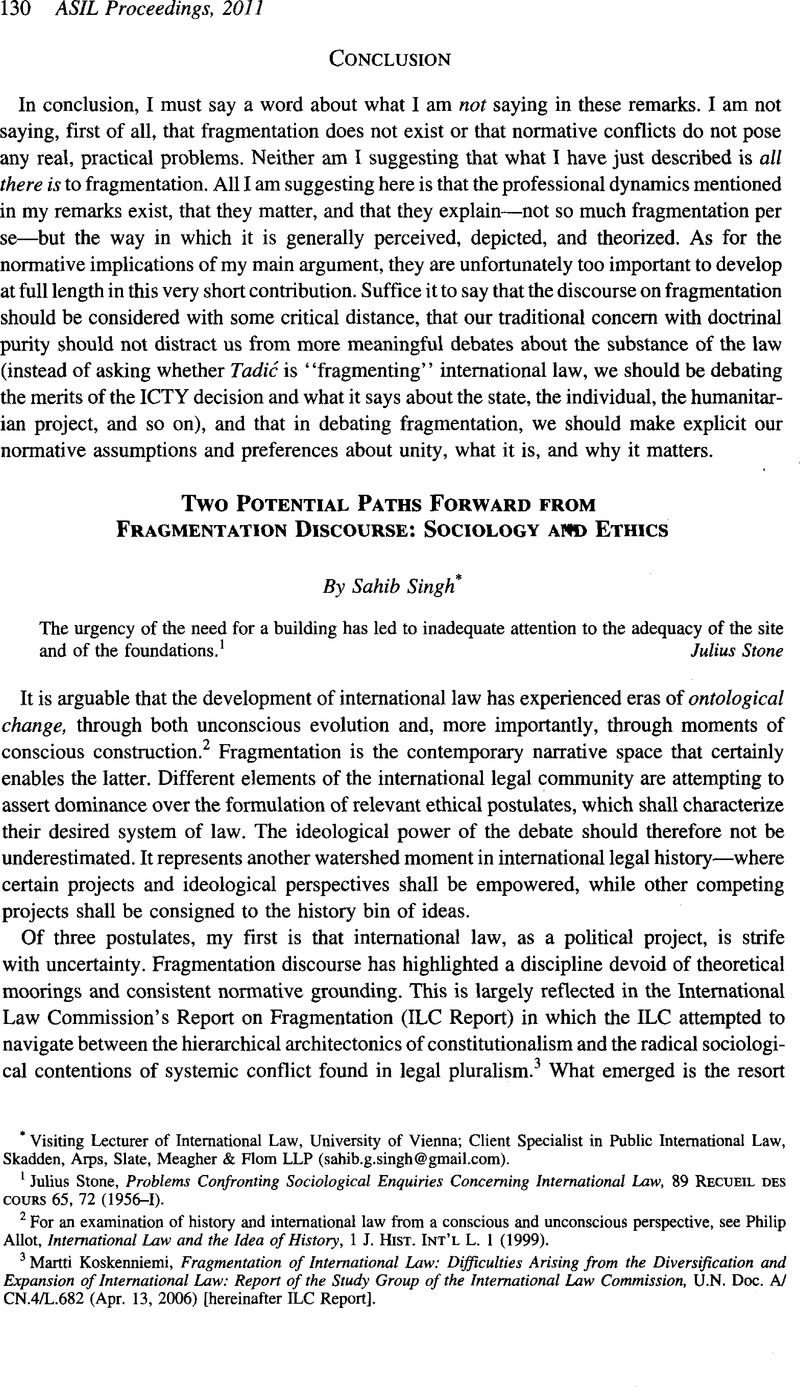No CrossRef data available.
Published online by Cambridge University Press: 28 February 2017

1 Stone, Julius, Problems Confronting Sociological Enquiries Concerning International Law, 89 Recueil Des Cours 65, 72 (1956-1)Google Scholar.
2 For an examination of history and international law from a conscious and unconscious perspective, see Allot, Philip, International Law and the Idea of History, 1 J. Hist. Int’l L. 1 (1999)Google Scholar.
3 Koskenniemi, Marni, Fragmentation of International Law: Difficulties Arising from the Diversification and Expansion of International Law: Report of the Study Group of the International Law Commission, U.N. Doc. A/CN.4/L.682 (Apr. 13, 2006)Google Scholar [hereinafter ILC Report].
4 For a detailed discussion of the Ilc Report, see Singh, Sahib, The Potential of International Law: Fragmentation and Ethics, 24 Leiden J. Int’l L. 23 (2011)Google Scholar.
5 See Kaufmann, Erich, Régles generals du droit de la paix, 54 Recueil Des Cours 309 (1935-IV)Google Scholar (the special was part of the general); Rousseau, Charles, De la compatibilité des norms juridiques contradictoires dans l’ordre international, Revue Generale De Droit International Public 132 (1932)Google Scholar (showing the holes in the dominant formalist position being used to safeguard the existence of a system).
6 Kennedy, Duncan, Three Globalizations of Law and Legal Thought: 1850-2000, in The New Law and Development: A Critical Appraisal 37 (Trubek, David & Santos, Alvaro eds., 2006)Google Scholar.
7 McDougal, Myres S., International Law, Power and Policy: A Contemporary Conception, 82 Recueil Des Cours 113 (1953)Google Scholar.
8 For the turn to humanity as a Grundnorm among the functioning of tribunals, see Teitel, Ruti & Howse, Robert, Cross-Judging: Tribunalization in a Fragmented But Interconnected Global Order, 41 N.Y.U. J. Int’l L. & Pol. 959 (2009)Google Scholar.
9 ILC Report, para. 488; see also the general writings of Martti Koskenniemi.
10 For a critical call against international adjudication, see Martti Koskenniemi, Speech to The Hague: The Ideology of International Adjudication 18 (Sept. 7, 2007).
11 See also Singh, supra note 4, at 41.
12 We should therefore differentiate the turn to ethics suggested by Jellenik, despite such an approach possibly going hand in hand with the turn to sociological thought suggested earlier in these remarks.